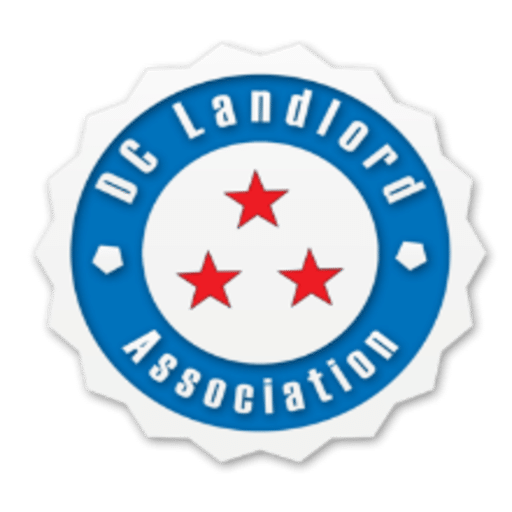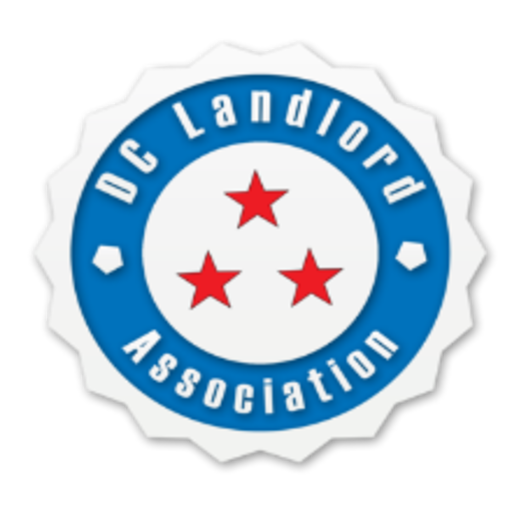Newsletter September 2025
📌 Message from the Association
As we enter September, many of us are watching recent changes in DC governance with concern—and curiosity. One of the most significant developments has been the federal government's emergency takeover of parts of Washington DC’s policing authority. What does this mean for the DC government, the community, and for landlords? This newsletter digs into that, along with other updates, and ends with a speculative look at what might happen if the federal government turned its attention to landlord-tenant laws too.
🔍 Major News: Federal Takeover of DC Police – What We Know and What to Expect
What happened
On August 11, 2025, President Trump invoked Section 740 of the DC Home Rule Act to declare a “crime emergency” in DC and took control of the Metropolitan Police Department (MPD), with federal oversight.
Along with the takeover: deployment of the National Guard; increased presence of federal law enforcement (DEA, FBI, other federal agents); checkpoints in many areas; expanded cooperation with federal immigration enforcement in certain traffic and stop scenarios.
The authority granted under the takeover is temporary: Congress must review and approve extensions beyond 30 days under the Home Rule Act.
Legal pushback is underway: DC’s Attorney General has sued claiming this is an unlawful overreach, pointing to the Home Rule Act, constitutional limits, and jurisdictional concerns.
What this could mean for DC Government, the Community, and Landlords
DC Government / Local Control
Loss or shrinking of autonomy: Many local policy decisions, especially policing, are being overruled or modified by federal mandate. This could set a precedent for future federal interventions.
Legal challenges may drag on, creating uncertainty for how much local power remains.
Budgetary & staffing impacts if MPD protocols are changed, or agencies restructured under federal oversight.
Community & Tenants
Increased law enforcement presence may bring short-term drops in certain crimes or crime perception; but risks of over-policing, racial profiling, and erosion of community trust are high.
Immigrant communities in particular may feel under threat if MPD shares info with ICE or other federal agencies.
Civil liberties concerns: due process, rights protections, how warrants / arrests are handled.
Potential for displacement: if public safety crackdowns target homeless encampments, or small behavior infractions are policed more strictly.
Landlords
Mixed effects: a safer neighborhood may increase property values, reduce vandalism, and reduce some crime related expenses.
But stricter policing may mean more reporting, compliance demands, or liability. Landlords might face new mandates about safety, reporting of criminal activity, or cooperation with law enforcement.
Increased instability: frequent shifts in enforcement policy might lead to confusion over what rules apply, what tenant screening is allowed, how evictions can proceed, etc.
Potential for more legal/regulatory risk if courts or oversight bodies side with tenants on civil rights or due process when law enforcement overreach occurs.
🛠️ Bonus: What If the Federal Government Also Revamped DC’s Landlord-Tenant Laws?
Let’s imagine: The feds decide that landlord-tenant law in DC has “inefficiencies” and intervene (by law, funding conditionality, or direct oversight). What changes might we see, and what would it mean?
Possible Reforms
Standardized Eviction Procedures
Fewer delays or ambiguities. Perhaps stricter timelines for eviction filings, hearings, and judgments.
More consistent rules about notice, grace periods, late fees.
Improved Tenant Rights Protections
Clearer protections around discrimination, including criminal history, eviction history, and credit scoring. DC already has some laws moving in that direction.
Protections against retaliatory evictions.
More transparent processes for tenants to contest unsafe or uninhabitable conditions.
Stronger Enforcement of Housing Quality & Habitability
Federal oversight or compliance standards could require landlords to maintain properties to code, with stronger penalties where code is violated.
More funding for inspections, faster resolution of repair orders.
Financial Relief Mechanisms
More robust rental assistance programs, possibly tied to federal funds.
Subsidies or tax incentives for landlords who preserve affordable housing or invest in safety/repair improvements.
Judicial & Administrative Reforms
Specialized landlord-tenant courts or tribunals for faster resolution.
More uniform case law or statutory language to reduce contradictory rulings.
Simplification of paperwork and process for both landlords and tenants.
Data, Transparency, Accountability
Mandatory data collection/reporting on eviction filings, outcomes, landlord compliance, housing code violations.
Federal reporting requirements may force DC to publish more regularly, enabling better planning and policy.
What Could That Mean for Landlords (Pros and Cons)
Pros
More predictability in what’s required legally.
Faster resolution of problem cases.
Improved safety standards could reduce liability or reputational risk.
Better housing stock may help property values and tenant satisfaction.
Cons/ Risk
Increased compliance cost (repairs, inspections, legal counsel).
More stringent tenant protections may make evictions harder & slower.
Possible increase in administrative / legal complexity.
Some landlords may feel constraints on screening criteria or rent-adjustment flexibility.
⚖️ Current Landlord-Tenant Law Reforms Update
The RENTAL Act: A sweeping reform introduced earlier this year that is being debated; includes proposals to change how quickly evictions can occur, reform tenant rights to purchase under TOPA (Tenant Opportunity to Purchase Act), adjust how criminal activity in the home is handled, etc.
Concern among landlord and tenant advocates about parts that may allow eviction on presumption (even before legal adjudication) for crime or arrests in the household.
💡 What We’re Doing (and What You Can Do)
Monitoring legal actions: The DC Landlord Association is following the lawsuits and congressional measures closely. We’ll share guidance as court decisions or legislation evolves.
Encouraging member feedback: We want to hear your concerns about federal control, policing changes, and landlord-tenant reforms—what you’re seeing on the ground.
Advocating for balanced reforms: We support policies that protect tenants and neighborhoods, but also ensure landlords’ rights and ability to maintain their properties sustainably.
📬 Contact & Get Involved
If you have direct experience or case studies showing how these developments affect your properties or tenants, we’d like to feature them in our next newsletter or policy memo.

